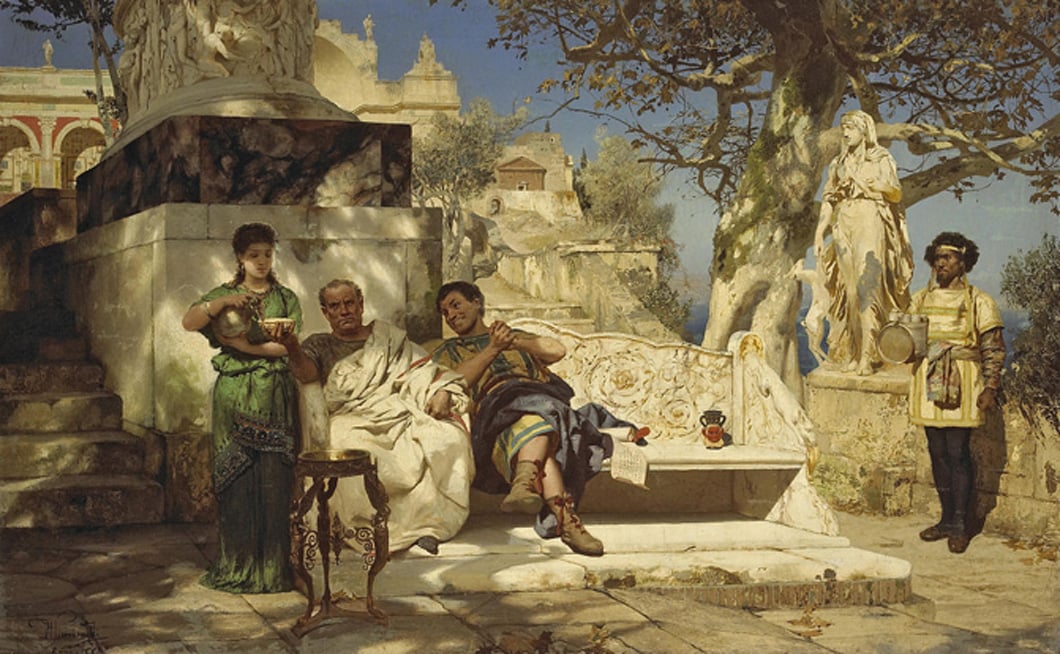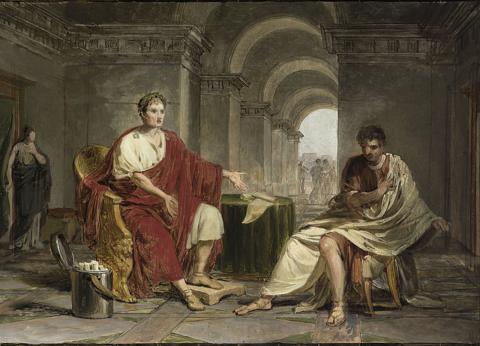
In a World Without Technology, How Did a Roman Citizen Identify Himself?
In ancient Rome, ID-cards, passports and other modern forms of identification did not exist. How could a Roman citizen identify himself in a world without pictures, computers or biometrics? Ancient Rome being a slave-owned society, proving who you were could mean the difference between being free and being put up for sale at a slave market.

Roman senator and a guest at leisure with slaves attending. Painting by Henryk Siemiradzki (1881) (Public Domain)
Rights of the Roman Citizen
Roman citizens were generally held in higher esteem than non-citizens, even if they were of slave descent. The rules governing Roman citizenship were way more complicated than the rules related to citizenship today, which are usually based on one’s place of birth and the parents’ citizenship. Furthermore, a Roman citizen had rights that a non-citizen did not have: he had the right to vote, he was exempt from certain taxes and he had the full protection of Roman law when making contracts, purchasing property, or even getting married. Furthermore, a Roman citizen could not be beaten without the benefit of a trial. He could not be tortured or crucified in any circumstances. The Roman state would investigate the murder of a Roman citizen, but not that of a non-citizen.

Captives in Rome by Charles Bartlett (1888) (Public Domain).
There were different levels of Roman citizenship with different rights associated to them. These various levels of citizenship were as follows:
- The Cives Romani were full Roman citizens. They were subdivided into two classes: the non optimo iure, who had rights of property and marriage and the optimo iure, who also had the right to vote and hold office.
- The Latini or the Latins were a tribe living in Latium in central Italy who came under Roman control at the close of the Latin War (340 – 338 BC) noting that the term “Latini” came to include people of non-Latin background. The Latini held a number of rights similar to those of Roman citizens (the Latin Rights or ius Latii in Latin) but they did not have the right of marriage (ius connubii).
- The Socii or Foederati were citizens of states which had treaty obligations with Rome and had certain rights in exchange for agreed levels of military service.
Following the Social War (91 – 88 BC), the Lex Julia was passed in 90 BC giving full Roman citizenship to all Latini and Italian socii states (and the socii states that had not participated in the Social War) and the Latini and socii levels of citizenship disappeared.
The provinciales were people from the provinces who were under Roman control or influence, but who only had basic rights under international law (ius gentium). Freedmen were former slaves who had gained their freedom and were not automatically given Roman citizenship. Their children however were born free citizens.





